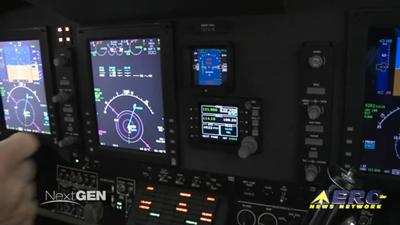Wed, Feb 22, 2017
Focuses On Adherence To Proper Test Procedures
The FAA has released a Safety Alert for Operators (SAFO) directed towards personnel involved with ground testing of aircraft Air Traffic Control (ATC) transponders and ADS-B OUT equipment. The SAFO points out the importance of adhering to proper test procedures and the hazards associated with improper testing.

The FAA has received reports of transponder and ADS-B OUT system ground test events in which information, including simulated altitude, was transmitted from the test aircraft and received by aircraft inflight. In at least one instance, an ADS-B OUT system ground test created a false airborne target that generated a Traffic Alert and Collision Avoidance System II (TCAS II) Resolution Advisory (RA) on a Boeing 737 aircraft on approach. Pilot reaction to this RA required unnecessary maneuvering in congested airspace and initiated ATC re-sequencing actions that affected multiple aircraft and negatively impacted operations in the area for about 30 minutes.
Transponders and ADS-B OUT systems operating under test conditions transmit specific information about the aircraft, including position and altitude data. These tests frequently involve a check of the aircraft’s altimetry system in which air pressure is induced into the pitot static system to simulate operation at various altitudes. In cases where transmission lines are not attached directly to test equipment, antenna shielding must be used to prevent propagation of test signals with potential to interfere with ATC operations or TCAS-equipped aircraft operating in the area.
The FAA recommends that repair stations and maintenance personnel performing transponder and ADS-B OUT system testing evaluate the adequacy of their procedures and adhere to proper test procedures to prevent uninhibited system transmission that may affect ATC operations or airborne aircraft. The FAA also recommends that applicable maintenance personnel be aware of any local requirements to alert ATC of impending testing, and to review relevant guidance contained in the latest revisions of:
AC 29-151, Airworthiness Approval of Traffic Alert and Collision Avoidance Systems (TCAS II), Versions 7.0 and 7.1 and Associated Mode S Transponders;
AC 43.6, Altitude Reporting Equipment and Transponder System Maintenance and Inspection Practices; and
AC 20-165, Airworthiness Approval of Automatic Dependent Surveillance - Broadcast OUT Systems.
(Source: FAA)
More News
Airplane Bounced About 3 Ft Then Touched Back Down And Then, With No Brakes Applied, The Airplane Began Veering To The Left Analysis: The pilot entered the airport traffic pattern >[...]
Aero Linx: British Microlight Aircraft Association (BMAA) The primary focus within all aviation activity is SAFETY. In all aspects of our sport SAFETY must come first, whether it b>[...]
From SnF25 (YouTube Edition): William Wynne Builds Practical Aircraft Engines on the Corvair Platform Seeking an affordable alternative to the traditional aircraft engine options, >[...]
How To Get A Story On Aero-TV News/Feature Programming How do I submit a story idea or lead to Aero-TV? If you would like to submit a story idea or lead, please contact Jim Campbel>[...]
From 2023 (YouTube Edition): Bridge of CiES CiES Inc. is a Bend, Oregon-based designer and manufacturer of modular embedded aircraft systems and sensors. The company’s fuel-l>[...]
 NTSB Final Report: Aviat A1
NTSB Final Report: Aviat A1 ANN's Daily Aero-Linx (07.08.25)
ANN's Daily Aero-Linx (07.08.25) Classic Aero-TV: Fly Corvairs Reliable Engine Alternative
Classic Aero-TV: Fly Corvairs Reliable Engine Alternative ANN FAQ: Contributing To Aero-TV
ANN FAQ: Contributing To Aero-TV Classic Aero-TV: CiES Fuel-Quantity and e-Throttle Systems Praised
Classic Aero-TV: CiES Fuel-Quantity and e-Throttle Systems Praised



